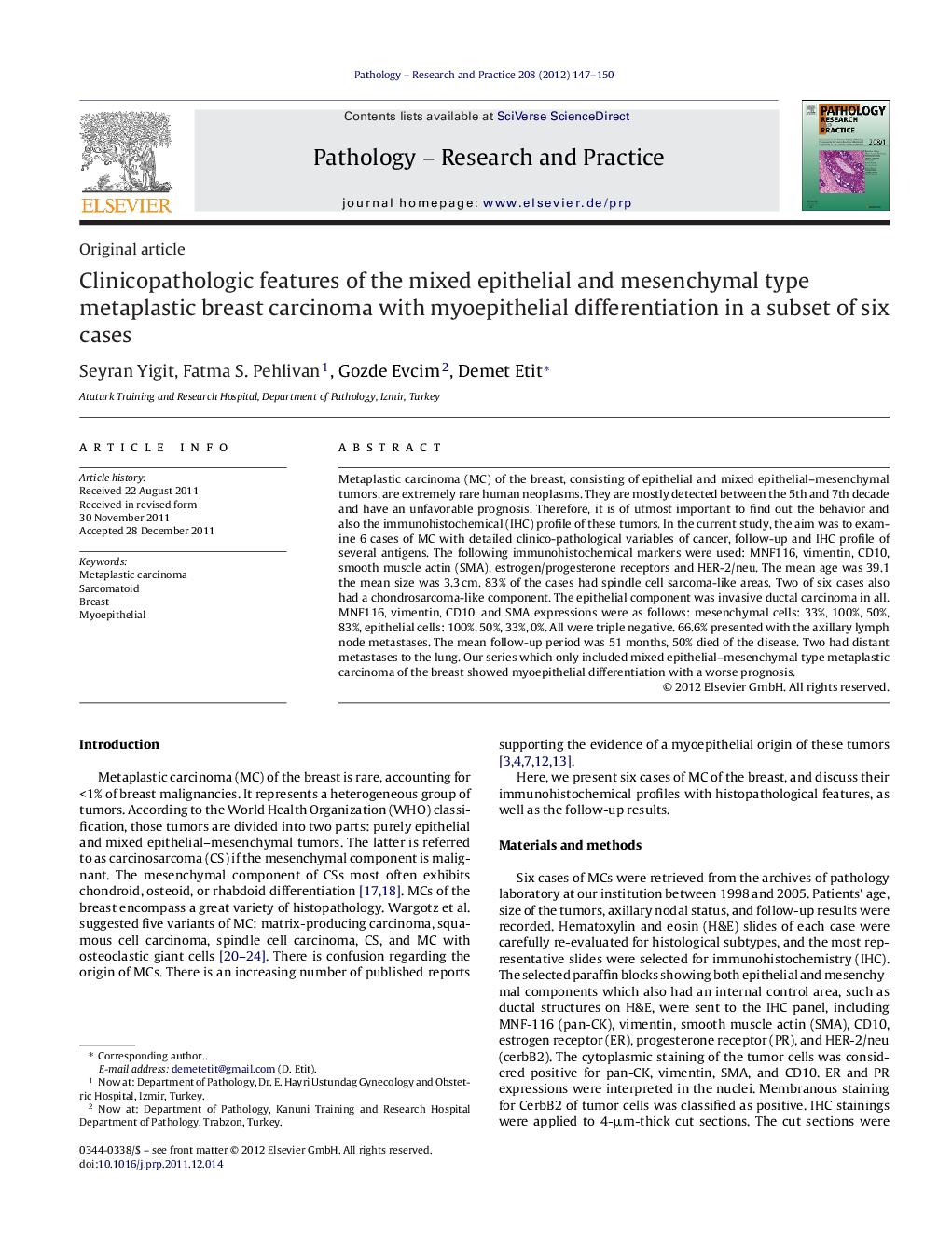| Article ID | Journal | Published Year | Pages | File Type |
|---|---|---|---|---|
| 2156041 | Pathology - Research and Practice | 2012 | 4 Pages |
Metaplastic carcinoma (MC) of the breast, consisting of epithelial and mixed epithelial–mesenchymal tumors, are extremely rare human neoplasms. They are mostly detected between the 5th and 7th decade and have an unfavorable prognosis. Therefore, it is of utmost important to find out the behavior and also the immunohistochemical (IHC) profile of these tumors. In the current study, the aim was to examine 6 cases of MC with detailed clinico-pathological variables of cancer, follow-up and IHC profile of several antigens. The following immunohistochemical markers were used: MNF116, vimentin, CD10, smooth muscle actin (SMA), estrogen/progesterone receptors and HER-2/neu. The mean age was 39.1 the mean size was 3.3 cm. 83% of the cases had spindle cell sarcoma-like areas. Two of six cases also had a chondrosarcoma-like component. The epithelial component was invasive ductal carcinoma in all. MNF116, vimentin, CD10, and SMA expressions were as follows: mesenchymal cells: 33%, 100%, 50%, 83%, epithelial cells: 100%, 50%, 33%, 0%. All were triple negative. 66.6% presented with the axillary lymph node metastases. The mean follow-up period was 51 months, 50% died of the disease. Two had distant metastases to the lung. Our series which only included mixed epithelial–mesenchymal type metaplastic carcinoma of the breast showed myoepithelial differentiation with a worse prognosis.
